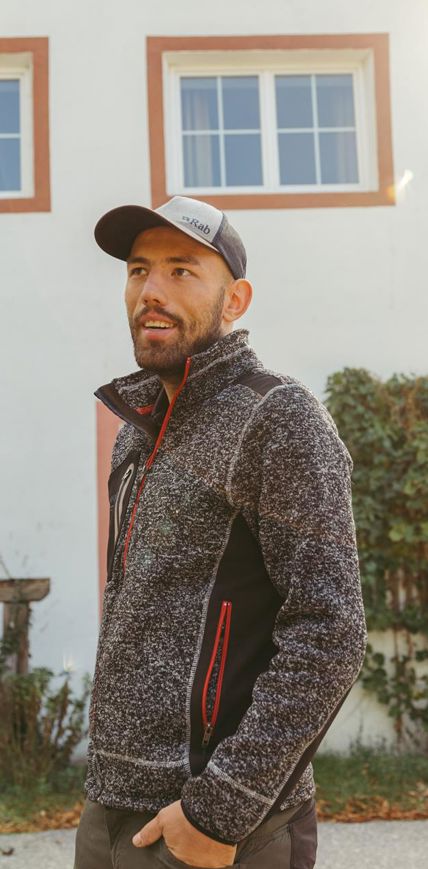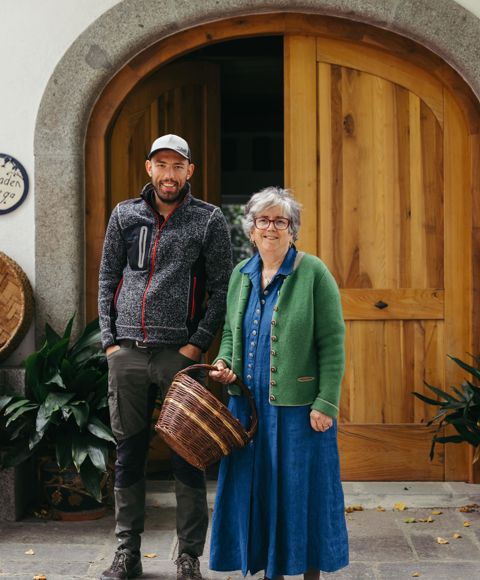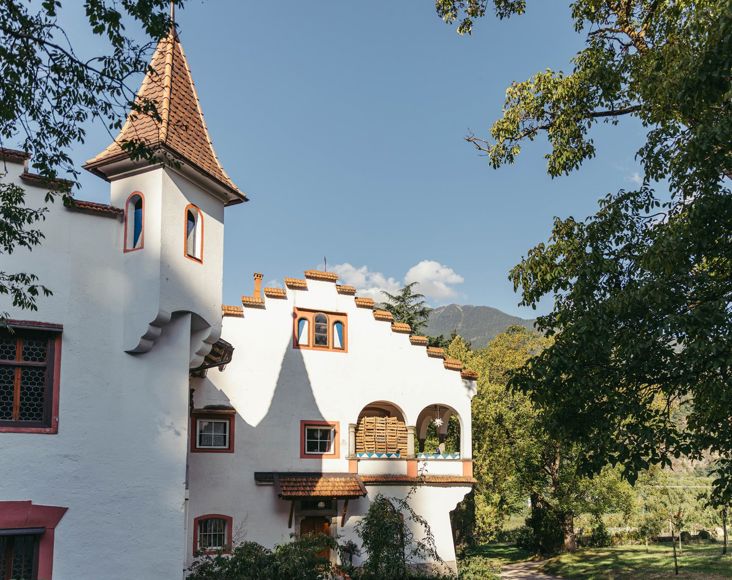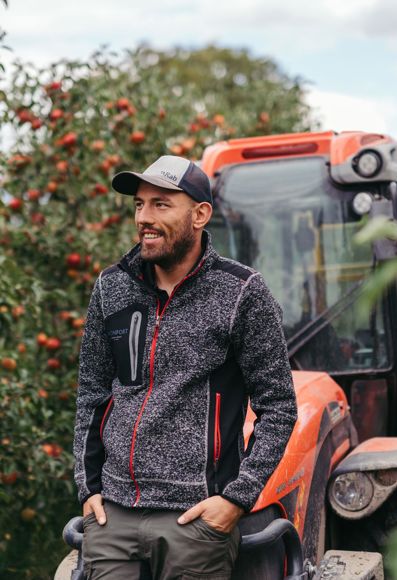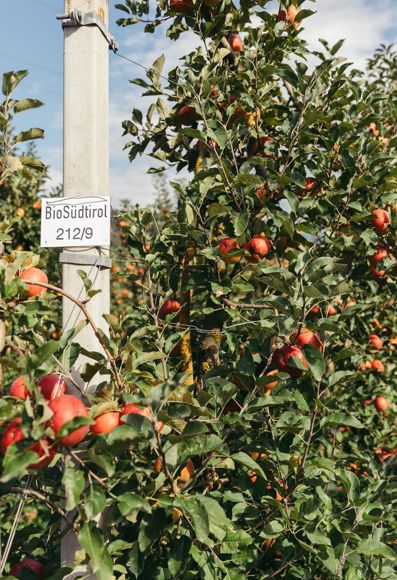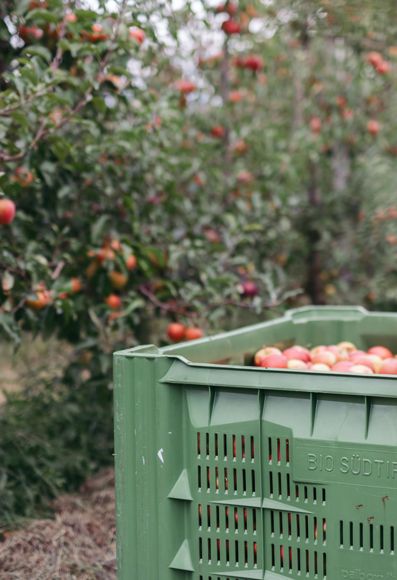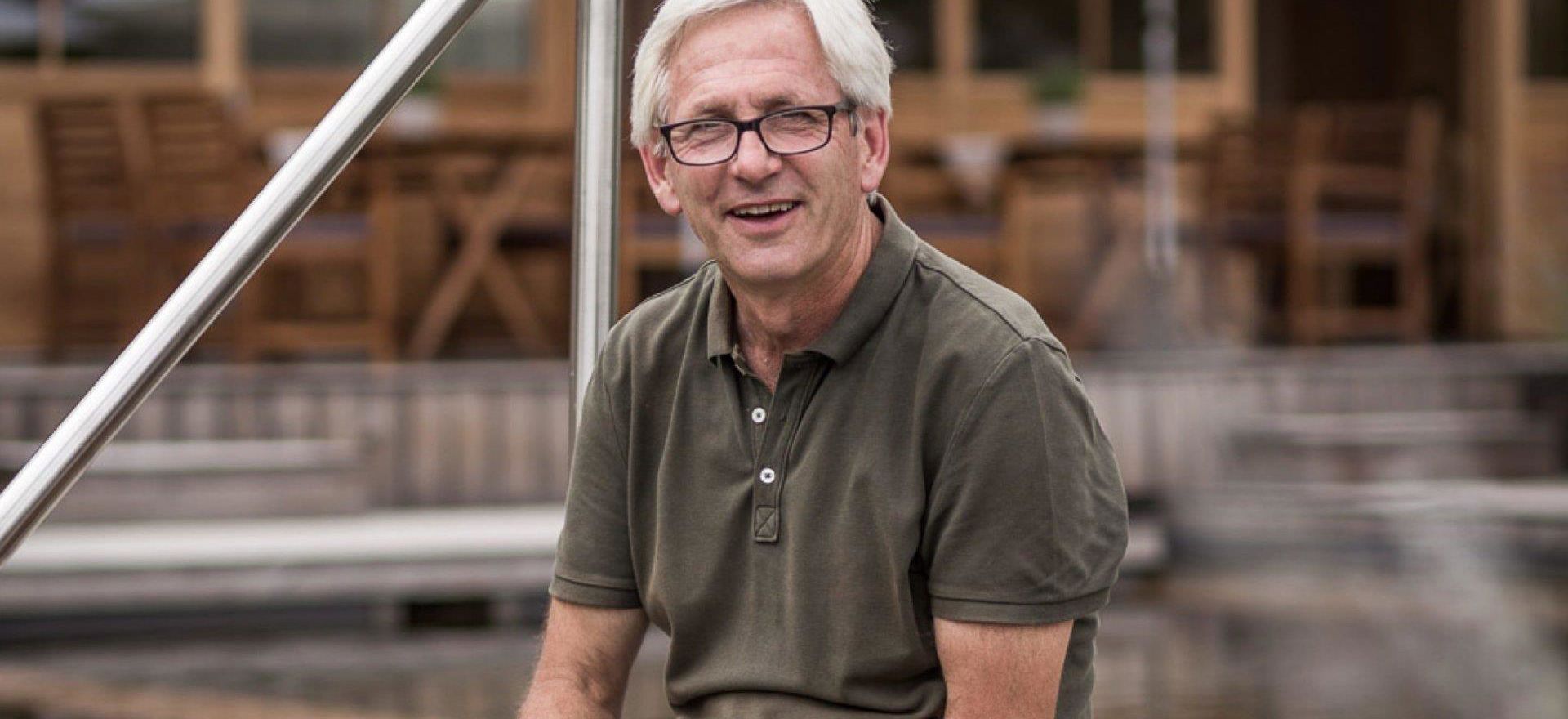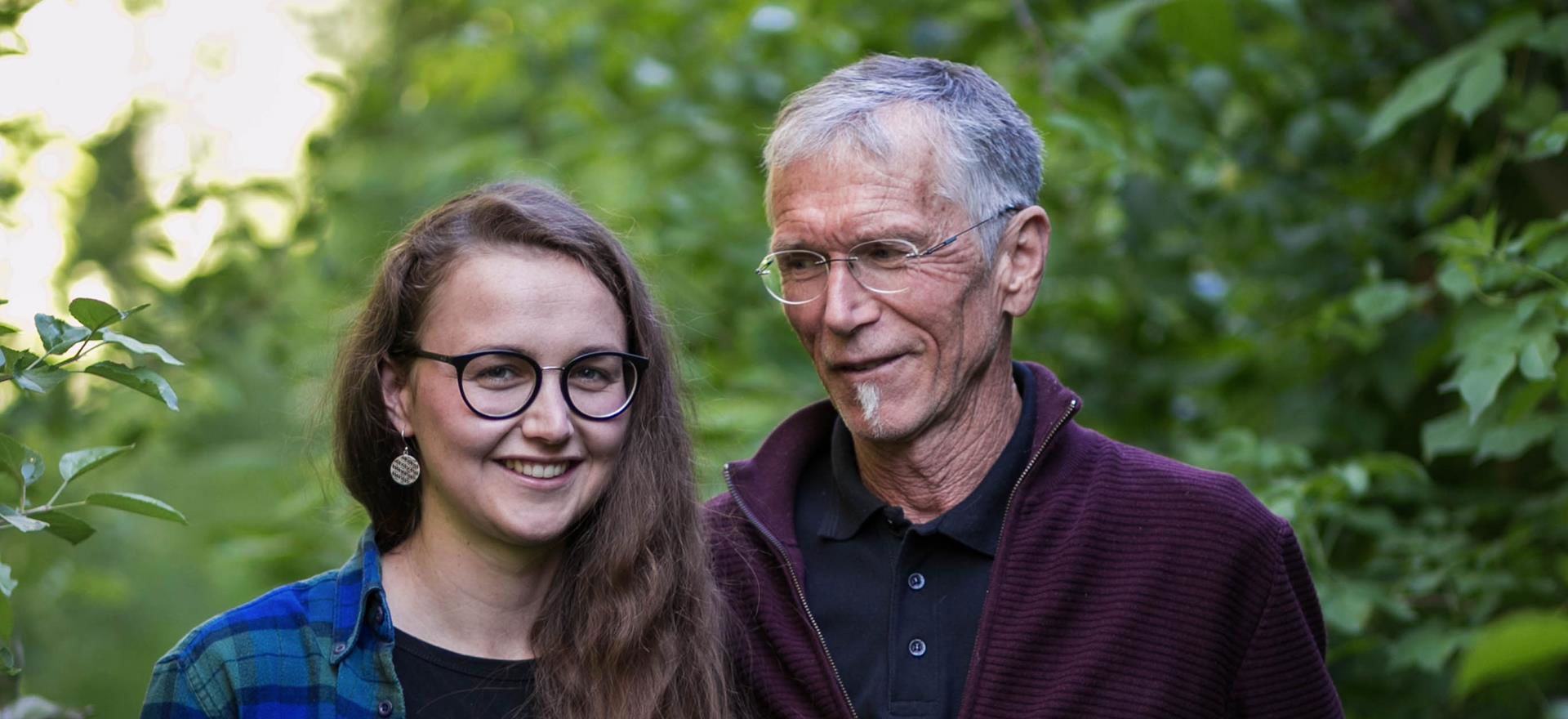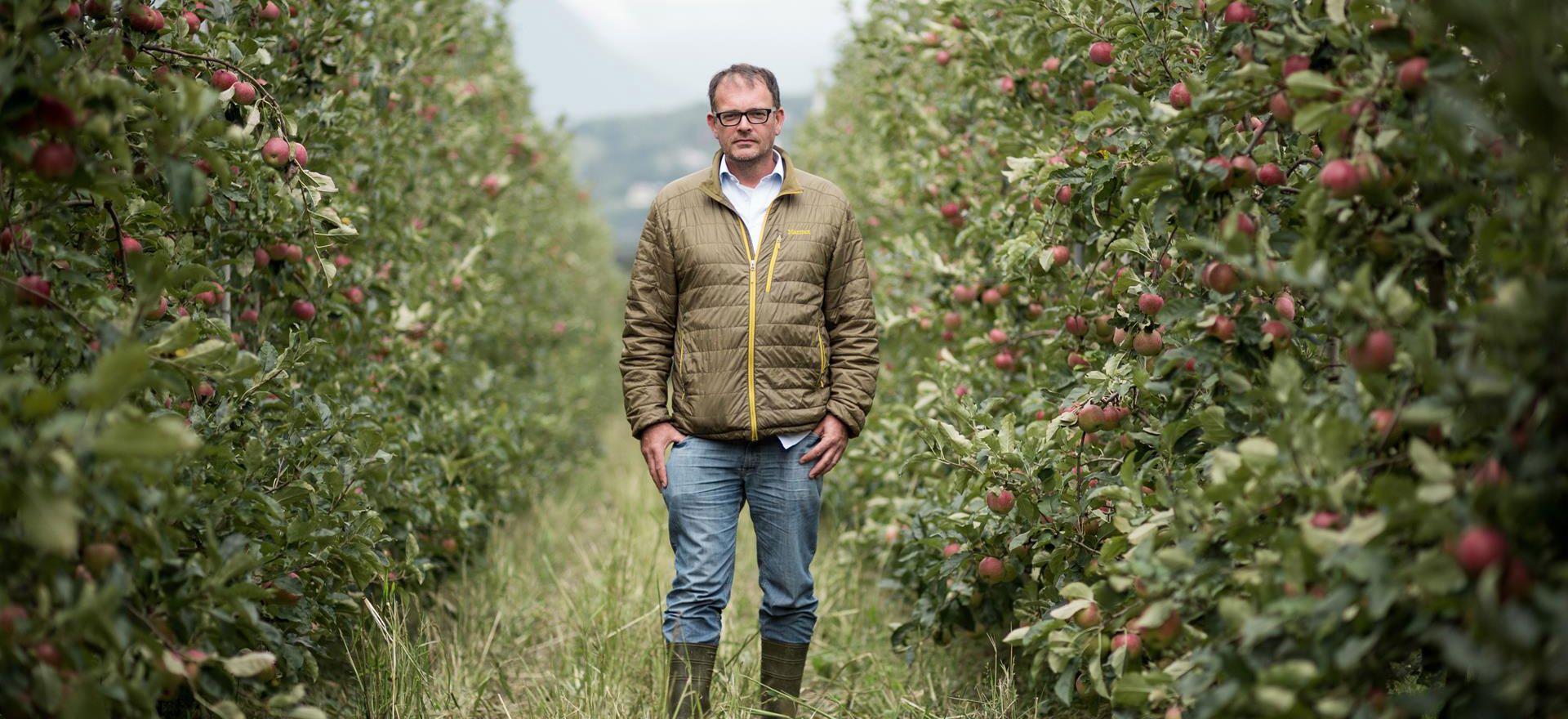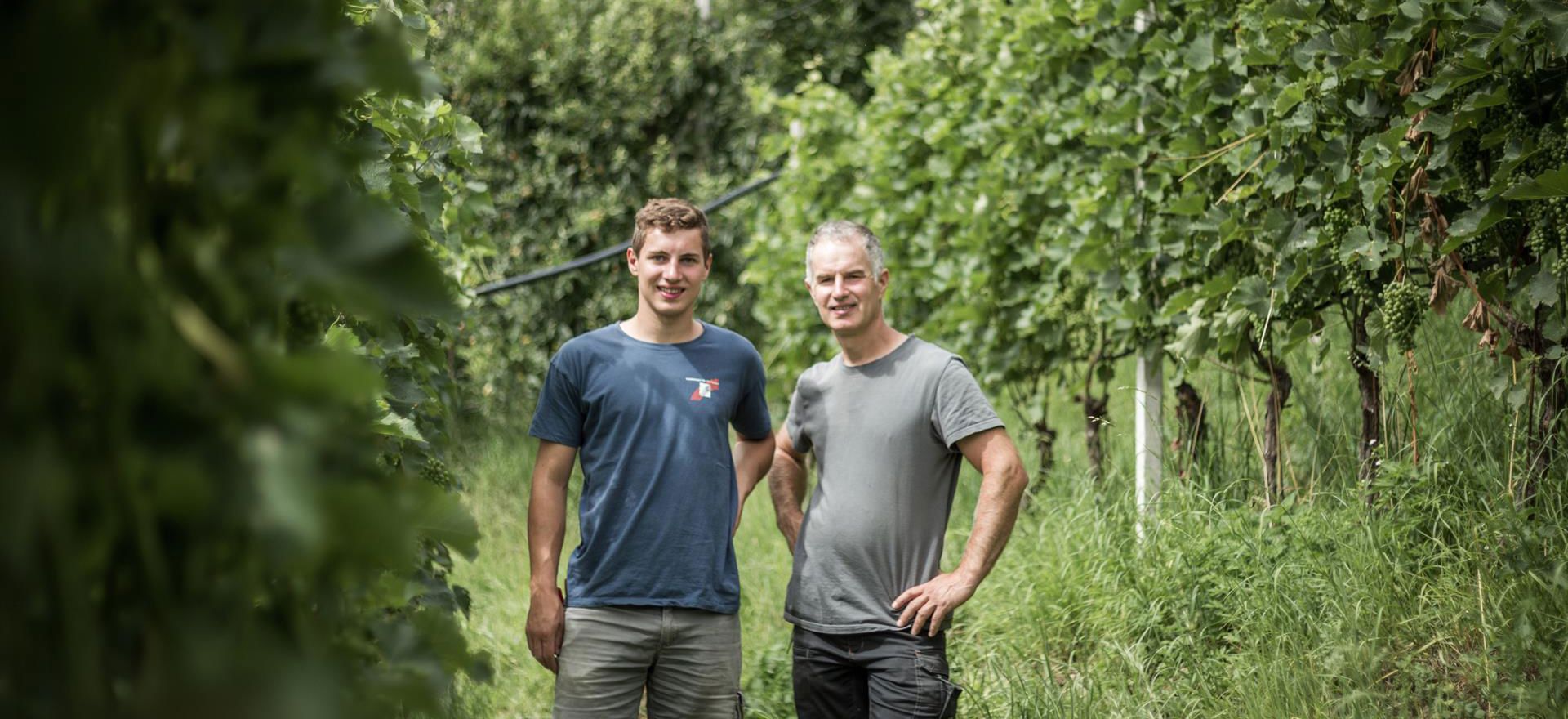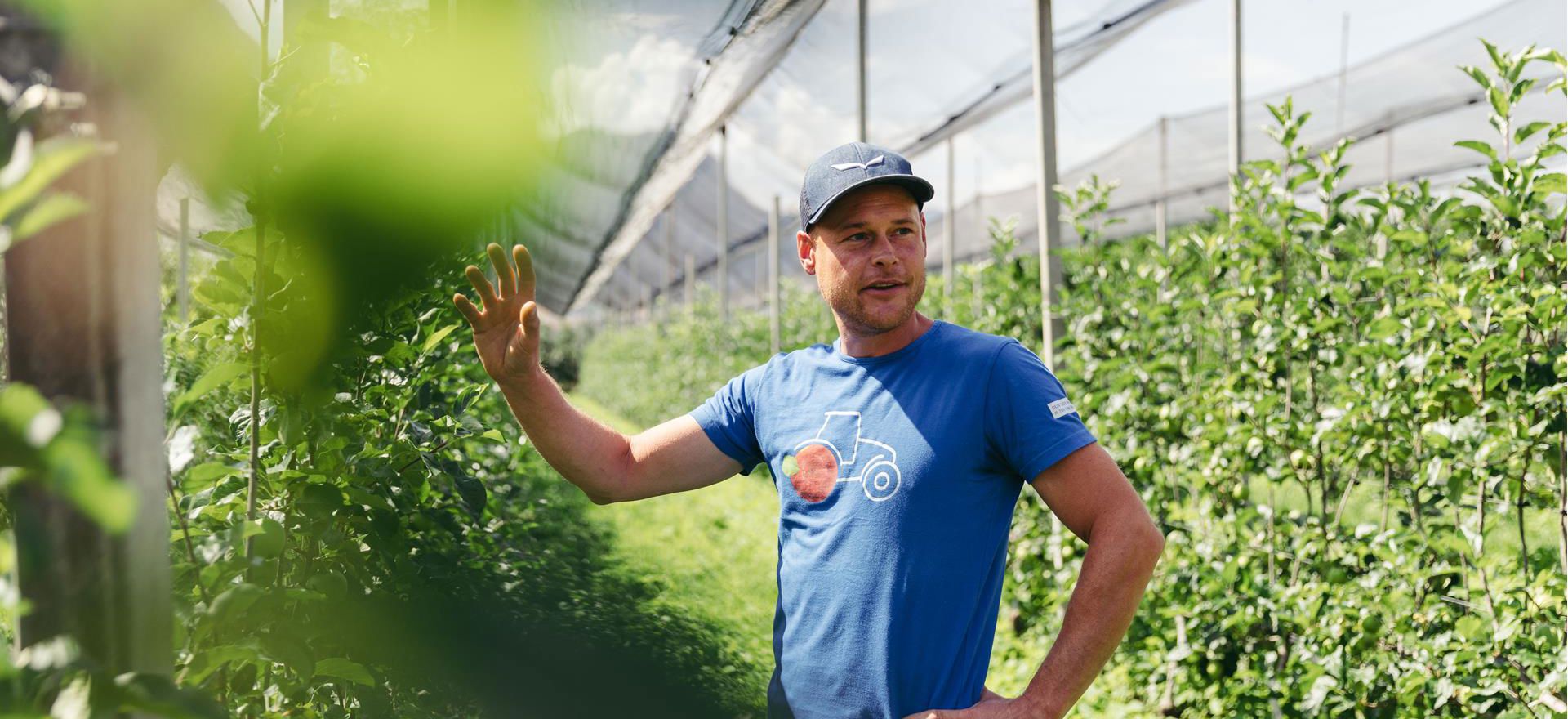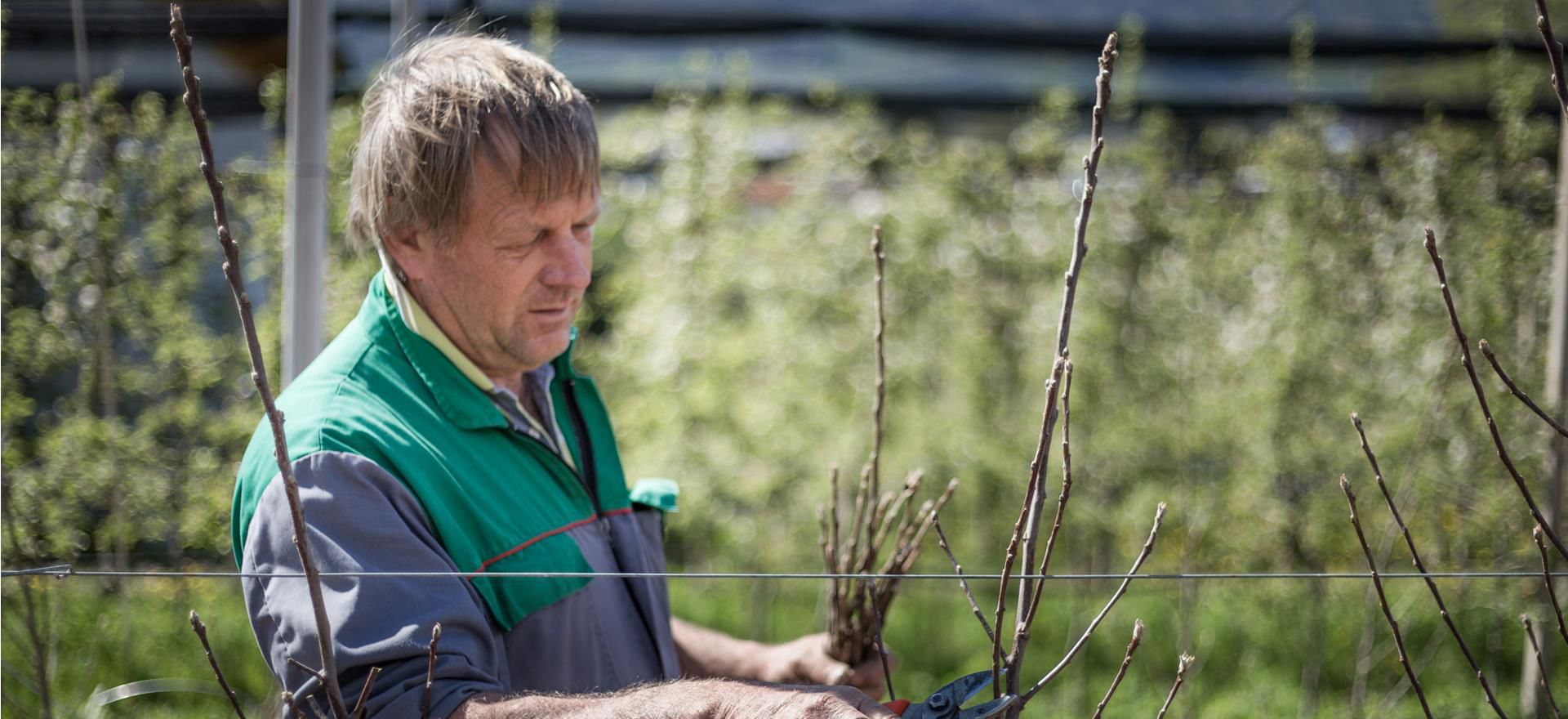The setting is Campan Farm, actually Campan Castle, in picturesque Sarns, near Brixen. A stately manor surrounded by green apple orchards. Holidaymakers can also spend some pleasant days here on the organic farm.
Klemens’ mother Rita is primarily responsible for attending to the holiday guests’ needs. His sister Christine supports her with digital guest management and the website. “The holiday flats are an important source of income for the farm,” Klemens told us. “After all, they help us maintain the castle. Houses need to be lived in; and such a big one even more so.”
The family descends from a noble, centuries-old Tyrolean family: Unterrichter zu Rechtental. Carl, Baron Unterrichter is one of Klemens’ ancestors. He purchased the estate, converted it into a castle and had the surrounding fields irrigated. Back then, most of it was riverbed and marsh land. Klemens’ grandfather Mario Günther and his father Rudolf developed the farm into what it is today. And they were the ones who converted to organic agriculture in 1997.
The family descends from a noble, centuries-old Tyrolean family: Unterrichter zu Rechtental. Carl, Baron Unterrichter is one of Klemens’ ancestors. He purchased the estate, converted it into a castle and had the surrounding fields irrigated. Back then, most of it was riverbed and marsh land. Klemens’ grandfather Mario Günther and his father Rudolf developed the farm into what it is today. And they were the ones who converted to organic agriculture in 1997.


